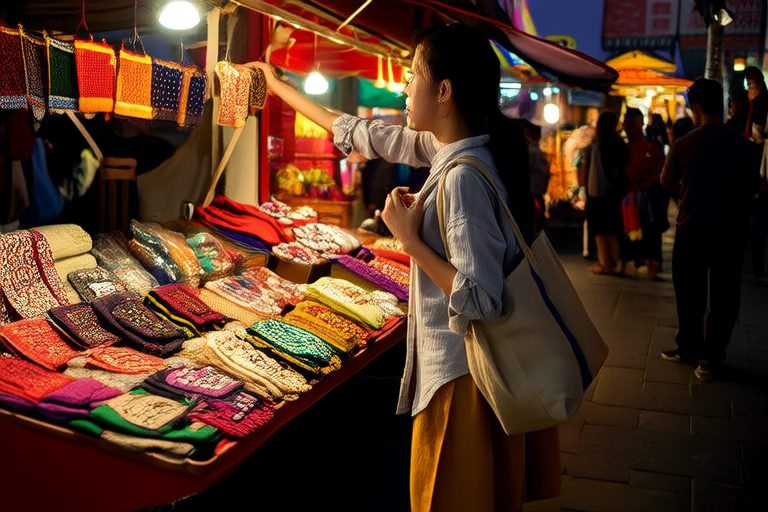Shopping Smarts: Insider Tips for Every Budget Traveler

“`html
Shopping Smarts: Insider Tips for Every Budget Traveler
1. Introduction
Traveling on a budget doesn’t mean you have to miss out on the joys of shopping. In fact, smart shopping can enhance your travel experience by allowing you to enjoy local culture, support small businesses, and bring back meaningful souvenirs without breaking the bank. However, many travelers face common challenges such as inflated prices in tourist areas, hidden costs, and the temptation to make impulse purchases. This guide will walk you through practical strategies to help you shop smarter and stay within your budget.
2. Pre-Trip Planning
Research Local Markets and Shops
Before embarking on your journey, take some time to research local markets, shops, and tourist traps. Understanding the lay of the land can save you money and time. Look for reputable markets known for their quality and authenticity. Websites like TripAdvisor and Lonely Planet often provide valuable insights from other travelers.
Identify Key Purchases
Make a list of items you know you’ll need during your trip, such as groceries, toiletries, and perhaps a few souvenirs. Compare prices online to get an idea of what to expect. This way, you can avoid sticker shock and budget accordingly. For example, if you’re traveling to a country where certain items are significantly cheaper than at home, it might be worth stocking up.
Consider Currency Exchange Rates and Budgeting Tools
Understanding currency exchange rates is crucial for budget travelers. Use a reliable currency converter to estimate how much your local currency is worth in the destination’s currency. Additionally, consider using budgeting apps that can help you track expenses and stay on top of your financial goals.
3. In-Country Strategies
Haggling Effectively
In many parts of the world, haggling is expected and can save you significant amounts of money. Approach negotiations with respect and patience. Start by assessing the product’s true value and set a reasonable price in your mind. Be willing to walk away if the seller is unwilling to meet your offer, as this often encourages them to reconsider.
Spotting Authentic Goods
Avoid falling for mass-produced souvenirs that lack authenticity. Look for unique items crafted by local artisans. Ask questions about the product’s origin and craftsmanship. Supporting local artisans not only enriches your shopping experience but also helps sustain traditional crafts and communities.
Best Times to Shop
The timing of your shopping can affect both your wallet and your experience. Early mornings and late evenings tend to be quieter times, offering better deals and less crowded shopping environments. Weekdays might also be more advantageous than weekends, especially in tourist-heavy areas. Research local holidays and events to avoid peak shopping periods.
4. Smart Spending Habits
Prioritize Essential Purchases
Stick to your shopping list and prioritize essential items over impulse buys. Remember, the goal is to enjoy your trip without financial stress. If something catches your eye, take a moment to reflect on whether it’s truly necessary before making the purchase.
Utilize Discounts and Loyalty Programs
Many stores offer loyalty cards, discounts, and coupons. Sign up for these programs to maximize your savings. Keep an eye out for promotional offers and sales, which can significantly reduce the cost of your purchases.
Avoid Hidden Costs
Be mindful of additional charges such as taxes, delivery fees, and packaging costs. These can quickly add up, especially if you’re buying multiple items. Always read the fine print and ask questions if you’re unsure about any extra charges.
5. Ethical Shopping
Support Local Artisans and Small Businesses
Shopping locally is not only beneficial for your budget but also for the community. By supporting local artisans and small businesses, you contribute to the preservation of cultural heritage and economic sustainability. Look for shops that showcase handmade crafts and traditional techniques.
Avoid Unethical Purchases
Avoid buying products made from endangered species or those produced under unethical labor conditions. Many countries have strict laws against importing such items, and there are often penalties for violating these regulations. Instead, choose sustainable and ethically sourced alternatives.
6. Post-Trip Reflections
After returning from your trip, take some time to reflect on your shopping experiences. What worked well? What could have been improved? Use these insights to refine your approach for future travels. Sharing your tips with fellow travelers can also help others make more informed decisions.
Conclusion
Shopping smartly while traveling is about balancing enjoyment with financial responsibility. By planning ahead, being mindful of your purchases, and supporting ethical practices, you can have a rewarding shopping experience that enhances your overall travel experience. Continue practicing these habits even after you return home to maintain good financial health and a deeper appreciation for different cultures.
“`